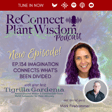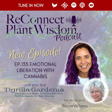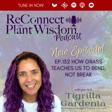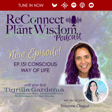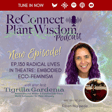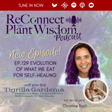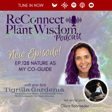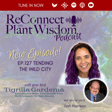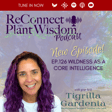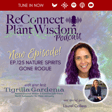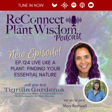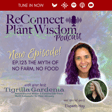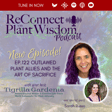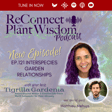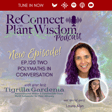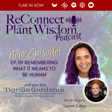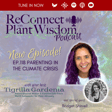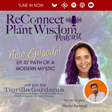
Ep.69 Daughter of Tulip Poplar Tree with Amanda Nicole
In this episode, I had the pleasure of speaking with Amanda Nicole about her unique bond with the Tulip Poplar Tree, which she lovingly refers to as her plant parent. For the past decade, this tree has been her guide and companion, enriching her journey of self-discovery and spiritual transformation. Amanda shares how her deep connection to the Tulip Poplar has led her down unexpected yet beautiful paths, illustrating the profound impact that a relationship with a plant can have on personal growth.
A recurring theme in our conversation is the importance of present-moment awareness and stillness, which plants inherently embody. Amanda and I delve into how these qualities enhance our perception and responsiveness to the world around us. We explore the significance of incorporating plant wisdom into human decision-making, advocating for a more sustainable and harmonious way of living.
Amanda Nicole is a Liriodendress, a daughter of the Tulip Poplar tree. Author of Flowers for a Girl: Plant Medicine and Sexual Trauma, Amanda is the creator and curator of Entosophy, a dynamic collection of unique, philosophical interviews with trees. She is the human voice of the Whispers: Plant Spirit Medicine podcast and a teacher and contributing voice at the Matthew Wood Institute of Herbalism. Immersed in the quiet exploration of Other Ways of Knowing, Amanda’s embodied expression is deeply embedded in the heart of the Tulip Poplar tree who has been her arboreal companion and teacher for many years. A mother and eco-mystic, Amanda Nicole listens to the trees.
👉🏽 Want to continue having conversations like this? Join the Naturally Conscious Community, the only online community to nourish human-plant relationships: https://tigrillagardenia.com/ncc
Topics Covered about Tulip Poplar
➡️ Instruments of incarnation
➡️ From Impenetrable Fortress to friendship and mentorship
➡️ What changes when you embody presence
➡️ Interviewing trees about climate change and society
☝🏽ReConnect with Plant Wisdom podcast Ancient and modern knowledge from biology to spirituality about the wondrous ways plants help you lead a Naturally Conscious life. Subscribe on your favorite podcast player.
// Let's work together: book a Discovery Call
// EcoConscious Business Partners:
Learn and Be Amazed with Gaia
Shop Here
// Opening and Closing music by Steve Sciulli and Poinsettia from The Singing Life of Plants
// Socialize with me
Facebook | Instagram | LinkedIn | Youtube

